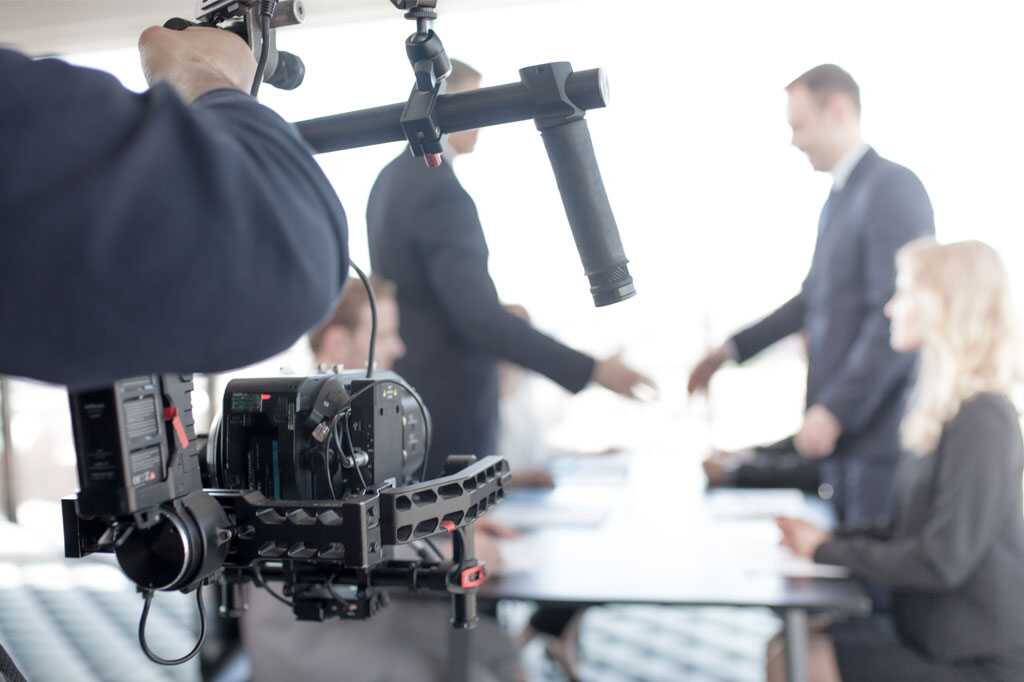Mastering technical setups for flawless legal video depositions
The Relevance of Legal Video Clip Depositions in Modern Legal Providers: What You Need to Know
Lawful video depositions have become important in today's legal landscape. They provide a multidimensional sight of witness testaments that traditional transcripts simply can not match. By catching both non-verbal and spoken communication, these depositions enhance the general understanding of a witness's credibility. However, the performance of video depositions pivots on numerous factors, including conformity with lawful criteria and finest methods (legal video depositions). Discovering these aspects reveals their true value in modern-day legal services
What Are Lawful Video Depositions?
Lawful video depositions function as an important device in the lawsuits procedure. They entail tape-recording witness testimonies in a video clip layout, recording both non-verbal and spoken interaction. This method enables lawyers to document the attitude, expressions, and reactions of witnesses, supplying a richer context for the testament. Generally performed in a regulated environment, these depositions are led by attorneys that ask inquiries while a court reporter records the discussion. The resulting video clip can be crucial for trial prep work, as it makes it possible for lawyers to evaluate the credibility of witnesses and refine their techniques. Furthermore, lawful video clip depositions can be made use of in various legal contexts, varying from civil disputes to criminal cases. The visual and acoustic components of video depositions enhance the presentation of evidence, making it a necessary part in the modern-day lawful landscape. On the whole, they add substantially to the efficiency and effectiveness of legal proceedings.

Advantages of Video Depositions Over Standard Techniques
Video clip depositions provide many benefits compared to conventional techniques of taking witness statements. One substantial advantage is the capacity to record both audio and aesthetic aspects, offering a much more extensive record of the witness's statements. This twin layout boosts clearness and enables attorneys to reference details subtleties throughout trial prep work. In addition, video clip depositions assist in remote involvement, making it simpler for witnesses who might be not available for in-person appearances as a result of geographical restrictions or health and wellness issues.Moreover, video depositions can quicken the overall deposition procedure, minimizing the time and prices connected with travel and logistics. They also boost availability, as tape-recorded depositions can be easily shared amongst legal groups and referenced at any type of time. This convenience adds to much better case monitoring and preparation. On the whole, video depositions stand for a contemporary, efficient strategy to collecting witness statements, aligning with the progressing needs of the lawful career.
The Function of Body Language and Tone in Testimonies

In legal video clip depositions, body language and tone play essential functions in sharing a witness's reliability and reliability. Nonverbal hints can give understandings into a witness's psychological state, affecting how their testament is viewed. Comprehending the impact of these elements is vital for attorneys and jurors alike when evaluating the dependability of a testament.
Nonverbal Interaction Insights
While verbal interaction is usually emphasized in legal statements, nonverbal hints such as body movement and tone play a crucial role in communicating reputation and feeling. Observers of depositions may note that a witness's posture, gestures, and facial expressions can significantly influence understandings of dependability. For circumstances, regular eye call might signify self-confidence, while staying clear of stare can recommend deceit or discomfort. Likewise, the tone of voice-- its speed, volume, and pitch-- can pass on feelings of genuineness or unpredictability. Lawyers have to be in harmony with these nonverbal signals, as they typically offer critical context that enhances spoken words. Comprehending these subtleties can boost the performance of depositions and influence the end result of legal proceedings.
Psychological Tone Effect
The emotional tone communicated during lawful statements greatly influences just how a witness is viewed. Body language, singing inflections, and faces play essential duties in shaping the narrative of a testimony. A witness showing confidence via stable eye contact and a calm tone can impart a sense of integrity and interaction. Conversely, indications of anxiety, such as fidgeting or an unstable voice, might result in skepticism concerning their account. The subtleties of psychological expression can influence the analysis of facts, making it essential for legal specialists to recognize these hints. In video clip depositions, the visual and acoustic elements integrate, highlighting the value of emotional tone in conveying genuineness and truthfulness within the legal procedure.
Reputation and Dependability
An essential consider developing reputation and credibility during testimonies depends on the witness's body movement and intonation. Onlookers frequently depend on non-verbal cues-- such as eye get in touch with, posture, and motions-- to evaluate a witness's genuineness. A witness who keeps eye get in touch with and presents open body language may be regarded as even more straightforward and reputable than one that prevents eye call or appears closed off. Furthermore, tone of voice plays a vital function; a steady, calm tone can reinforce the reputation of the statement, while variations in pitch or quantity might elevate doubts. Eventually, the mix of body language and singing tone significantly influences exactly how a witness's statements are obtained and translated in a lawful context.
Finest Practices for Carrying Out Video Depositions
Carrying out video clip depositions requires cautious preparation and implementation to assure a efficient and clear presentation of testament. It is vital to select a silent, well-lit area to minimize disturbances and safe and secure optimal video quality. The devices ought to be tested ahead of time, consisting of video cameras, microphones, and lights, to stay clear of technical problems during the deposition.Next, events entailed need to review the style and treatments beforehand, making certain that every person understands their roles. The deponent ought to be briefed on the process, including exactly how to react plainly and concisely.Additionally, keeping a professional demeanor throughout the session is important. This includes avoiding speaking over one another and verifying that all questions are directed appropriately. It is essential to videotape the deposition in a layout that permits for easy playback and testimonial, maintaining the integrity of the statement for future use.
Lawful Factors To Consider and Compliance Issues
Just how do legal factors to consider and compliance problems influence the performance of video depositions? Attorneys should navigate an intricate see this site landscape of policies, ensuring that video clip depositions follow jurisdictional rules and standards. Conformity with regulations worrying privacy, authorization, and videotaping methods is crucial. As an have a peek at this website example, obtaining specific consent from all events entailed is necessary to stay clear of lawful repercussions.Additionally, the admissibility of video proof in court can depend upon conformity with step-by-step needs. Making certain that the equipment utilized satisfies technical requirements is additionally important, as low quality can threaten the deposition's reliability.Moreover, lawyers should know any specific state regulations that regulate video clip depositions, as these can vary substantially. Failing to address these considerations can not just threaten the integrity of the deposition yet likewise affect the total situation approach, inevitably affecting the customer's legal end results.
Just How Video Clip Depositions Influence Court Understanding
While video depositions can act as powerful tools in lawful proceedings, their impact on jury assumption is significant. The aesthetic and acoustic elements of video recordings offer jurors with a more extensive understanding of witness demeanor, credibility, and emotional reactions. This multimedia strategy can improve the jurors' ability to evaluate the dependability of statement compared to standard text-based transcripts.Moreover, video depositions permit jurors to observe body movement, tone of voice, and face expressions, all of which can influence their analysis of the witness's declarations. The visibility of a witness on display can humanize them, promoting compassion and connection, which might sway jurors' point of views. Conversely, a witness who appears undependable or incredibly elusive on video clip might result in unfavorable perceptions that affect a jury's decision. Eventually, the dynamic nature of video clip depositions plays a vital duty fit how jurors translate proof and reach their verdicts.
The Future of Video Depositions in Legal Practice
As improvements in technology proceed to reshape the lawful landscape, the future of video depositions is positioned for significant development. Developments such as man-made intelligence, online truth, and enhanced video clip conferencing devices are expected to streamline the deposition process and enhance availability. Attorneys may utilize AI-driven analytics to assess witness credibility and case stamina a lot more effectively.Moreover, the integration of online fact could enable juries to experience immersive simulations of depositions, offering deeper context and understanding. Additionally, the fad towards remote depositions is most likely get more to continue, offering greater versatility for lawyers and customers alike.As remote work becomes significantly stabilized, video clip depositions will likely come to be basic technique, reducing costs and time restraints connected with traditional approaches. Generally, these technological advancements assure to improve the effectiveness, performance, and access of video depositions in legal practice, inevitably transforming how attorneys plan for test.
Regularly Asked Concerns
Just How Much Do Lawful Video Depositions Typically Expense?

Can Video Clip Depositions Be Made Use Of in Any Kind Of Kind Of Instance?
Video clip depositions can be utilized in various types of cases, including civil, criminal, and family legislation. Their adaptability allows lawyers to existing witness testimonies effectively, adjusting to the particular demands of different lawful situations.
What Devices Is Required for a Video Deposition?
To perform a video clip deposition, necessary tools includes a premium camera, microphone, illumination, and a reputable recording gadget. In addition, a computer system with editing and enhancing software program might be necessary for post-production and formatting the final video.
Just how Lengthy Does a Common Video Deposition Last?
A common video clip deposition lasts in between two to 4 hours, relying on the intricacy of the case and the variety of concerns positioned. Prolonged sessions might happen, but breaks are typically included for individual convenience.

Are Video Clip Depositions Admissible in Court?
Video depositions are normally acceptable in court, given they adhere to lawful criteria and policies of proof. Their usage enhances clarity and maintains witness statement, helping in the judicial procedure during hearings and trials. Lawful video depositions have actually ended up being crucial in today's legal landscape. Additionally, lawful video clip depositions can be utilized in various legal contexts, varying from civil disagreements to criminal situations. In addition, video clip depositions help with remote engagement, making it simpler for witnesses that might be unavailable for in-person appearances due to geographical restraints or wellness issues.Moreover, video depositions can quicken the general deposition procedure, reducing the time and expenses associated with travel and logistics. Making certain that the devices used meets technical criteria is also crucial, as inadequate top quality can undermine the deposition's reliability.Moreover, attorneys must be mindful of any kind of certain state laws that regulate video depositions, as these can differ greatly. In addition, the pattern towards remote depositions is likely to continue, offering better flexibility for attorneys and clients alike.As remote work ends up being significantly normalized, video depositions will likely become conventional practice, reducing prices and time restrictions linked with typical methods.